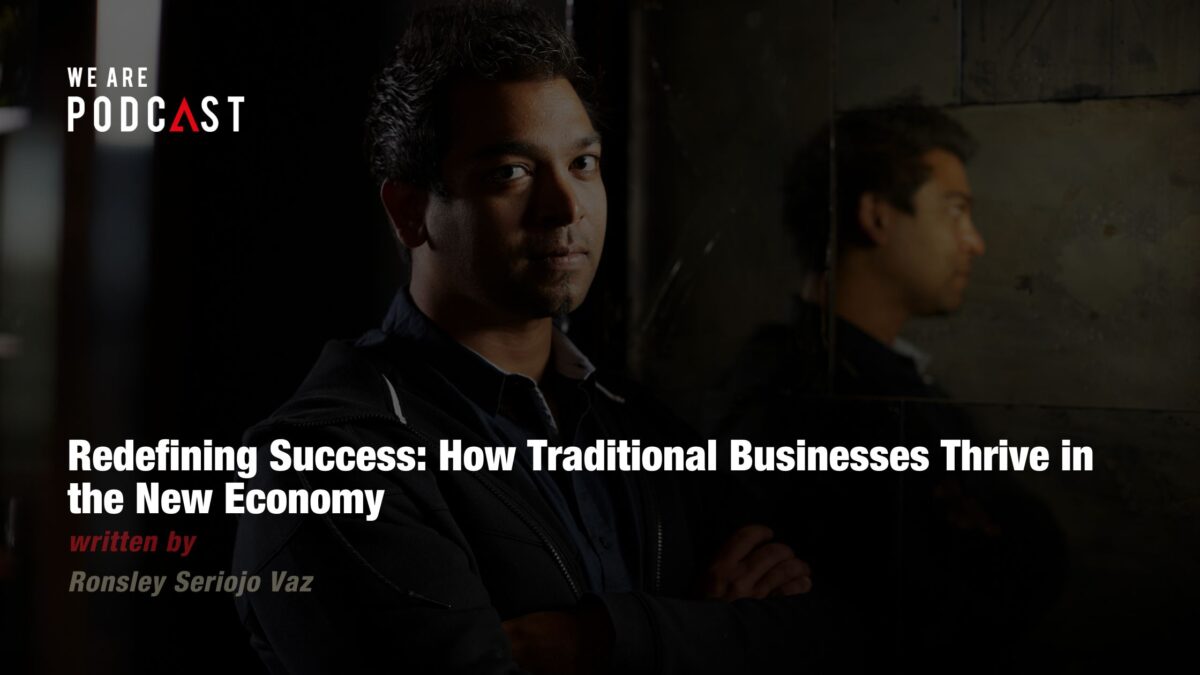In an age where the allure of tech startups and the digital economy dominates headlines, it’s easy to overlook the enduring power and potential of traditional businesses. These enterprises, often dubbed as ‘dull but good’, are the unsung heroes of the economy, crafting a legacy of resilience, sustainability, and growth. The entrepreneurial journey, as explored in a candid conversation with a seasoned entrepreneur who has navigated the highs and lows of business, offers invaluable insights for anyone feeling adrift in the tumultuous sea of entrepreneurship.
The Unassuming Power of Traditional Businesses
The narrative of entrepreneurship has been largely hijacked by the dazzling allure of tech startups, with their promise of rapid growth and revolutionary innovation. Yet, in the shadows of these giants lie traditional businesses, whose steadiness, reliability, and fundamental economic contributions often go unnoticed. Highlighting the intrinsic value these traditional businesses hold, the journey from riding the dotcom boom to pioneering new paths for small businesses in capital markets embodies the essence of entrepreneurial resilience.
These traditional businesses, from construction companies to manufacturing plants, may not boast exponential growth rates or flashy tech innovations, but they represent the backbone of the global economy. They generate steady cash flows, maintain consistent employment, and provide essential services and products. This experience, particularly in aggregating these businesses under a public company umbrella, illustrates an innovative approach to unlocking their hidden value and providing them with the capital and credibility to expand their reach.
Embracing Simplicity in a Complex World
One of the most compelling takeaways from examining such entrepreneurial experiences is the power of simplicity. In a world where business complexity is often mistaken for sophistication, there’s a refreshing clarity in focusing on fundamental principles. Reflecting on these journeys reveals a critical mistake many make: overcomplicating their business models, strategies, and operations in pursuit of success.
The truth is, success in business doesn’t necessarily stem from being at the forefront of technology or adopting the latest management fads. Instead, it comes from understanding your market, delivering real value to your customers, and building a solid foundation for sustainable growth. Prioritising simplicity and value over complexity and novelty offers a beacon of hope for entrepreneurs lost in the maze of modern business advice.
The Dichotomy of Value: Customer vs Shareholder
A particularly enlightening aspect of this entrepreneurial philosophy is the distinction between customer value and shareholder value. In the rush to innovate and disrupt, it’s easy for entrepreneurs to focus solely on providing customer value, often at the expense of shareholder interests. However, these experiences highlight the importance of balancing these priorities. By aligning the interests of customers and shareholders, businesses can achieve long-term sustainability and growth.
This balance is especially critical for traditional businesses in today’s economy. While tech startups may temporarily thrive on hype and investor speculation, traditional businesses have the opportunity to build lasting value based on solid fundamentals. This strategy of taking groups of traditional businesses public, without stripping away their identity or operational autonomy, showcases an innovative pathway to enhancing shareholder value while preserving customer satisfaction.
Navigating the Entrepreneurial Journey
For entrepreneurs feeling lost or overwhelmed, these lessons offer several key insights. First, the importance of resilience cannot be overstated. The path of entrepreneurship is fraught with challenges and setbacks, but it’s through these experiences that entrepreneurs learn, adapt, and ultimately thrive. The ability to rebound from the dotcom crash and reinvent a career path serves as a powerful reminder of the strength that lies in perseverance.
Second, the emphasis on building networks and leveraging personal branding highlights the value of connectivity in the modern economy. Whether through podcasts, publications, or strategic partnerships, establishing a strong personal brand can open doors to new opportunities and provide a platform for growth.
Finally, the success of traditional business models underscores the need for entrepreneurs to remain adaptable. The economic landscape is constantly evolving, and what worked yesterday may not work tomorrow. By staying open to new ideas, embracing change, and always looking for ways to add value, entrepreneurs can navigate the uncertainties of the market and carve out their own paths to success.
Conclusion
In a world captivated by the latest tech trends and startup success stories, the insights and experiences of those who have thrived in traditional business sectors offer a refreshing perspective on the value of traditional businesses. By embracing simplicity, balancing customer and shareholder value, and building resilient, adaptable strategies, entrepreneurs can redefine success in the new economy. Traditional businesses may not always capture the imagination of the public in the same way tech startups do, but their role in driving economic stability and growth is undeniable.
For entrepreneurs lost in the path of entrepreneurship, these stories serve as a beacon of hope. It serves as a reminder that success is not measured by how closely you follow the latest trends, but by how effectively you build a business that delivers real value.

